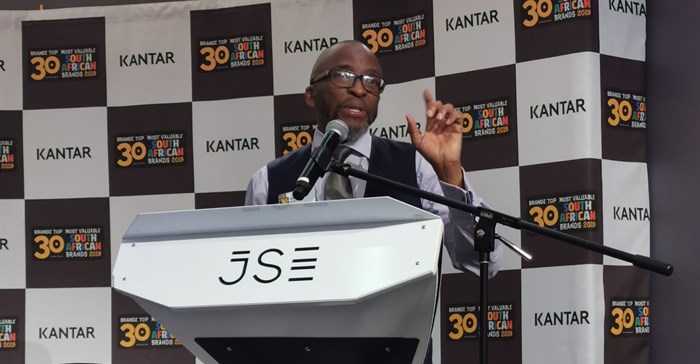The BrandZ Top 30 Most Valuable South African Brands tell a story of brands that are resilient in the face of adverse conditions. Some of the lessons learnt these successful brands were presented at the recent BrandZ Top 30 event.

Ivan Moroke, CEO South Africa, Insights Division, Kantar. Image supplied.
Master momentum to build sales
“Mastering momentum in the short and long term to build sales momentum requires three actions - experience, exposure and activation,” says Adhil Patel, global brand director, Kantar.
Experience influences repeat sales. He describes the experience as something that delights consumers. “FNB is a great example of this. The brand utilises service orientation and technology to deliver a delightful experience to its customers.”
“Brands that perform well at experience grow 10 x faster than the average,” he adds.
Exposure influences future sales. “It is the brand’s creative content and allows for short and long predisposition to your brand. “Like experience, great content can deliver more ROI – up to 10x on really great campaigns. Added to that, the stronger a brand’s clarity, the stronger its sales, and it can push growth up a further 20%.”
Activation influences immediate sales and is about capturing shoppers in the moment. “Brand predisposition shortens the purchase process. Brand cues/assets (logos, packaging, colours) play a strong role in this,” he says.
To ensure future success you need to understand all three areas. Patel recommends the following:
- Balance your investment across the three key points in the buyer cycle: experience, exposure and activation.
- Deliver the brand experience that will delight your existing users; they are the foundation on which your growth is built.
- Grow your brand to reach out to the future buyers and establish your meaningful difference now.
- Plan your brand activation to ensure salience with meaning among current searchers and shoppers.
- Inform good strategy and provide strong brand guidance.
Creating predisposition to buy
Sarah King, global head of brand insights division at Kantar, says while trust has always been important, today it is more important than ever. “Trust is part of our predisposition to buy and rests on three elements,” she explains.
- Reliability. “This is the brand promise reliable performance repeatably to the consumer,” she says.
- Insight (and empathy). “To enable the brand to make better offers. This is more important in some categories than others,” she says.
- Motive. “We are more likely to trust people who we think have fairness appreciation,” she says.
Trust today in the post-truth society we are living in has made it an important currency. “Trust as an outcome of what your brand did is not good enough anymore; brands need to work harder at trust,” she says.
To achieve this, she outlined the three I’s of trust:
- Integrity – “The golden thread of your brand, this is the consistent experiences across the brand journey. Nando’s and Discovery are two brands that do this very well,” she says.
- Identification – “Your brand must have something in common with consumers. This is the most human element of the three I’s and is about giving a face to the brand, but also about making yourself vulnerable,” she says.
- Inclusion – “This is about respect and sharing power. It can be collaborating with your competitors to work together to find solutions in your category to give consumers a better offering,” she says.
Creating a strong brand
Ivan Moroke, CEO South Africa, Insights Division, Kantar, gave five key insights to what makes a valuable brand:
- Strong brands are resilient. “Strong brands generate superior shareholder returns and cushion risk in difficult times. For example, the Top 30 are holding value better than any other aspects of the South African economy,” he states.
- Difference makes the difference. “By and large, South African brands are not distinct enough in the eyes of consumers and the country ranks below most countries in this regard.”
- Creating value. “Value is still the new black. The Top 30 top scorers also innovate well.”
- Build meaning beyond the rational. “South Africa scores well in functional meaning, but is behind in emotional meaning, and brands need to work harder to create emotional engagement with the consumer.”
- Communication. “This links to point number four, but while we do not build meaning beyond the rational enough, we over-index in humour in our communication and do not provide enough information to consumers. The functional and emotional need to work together.” he says.

